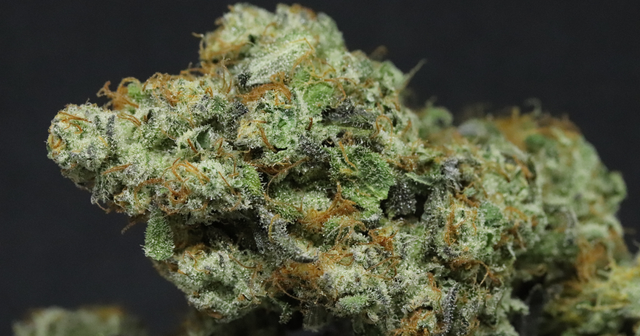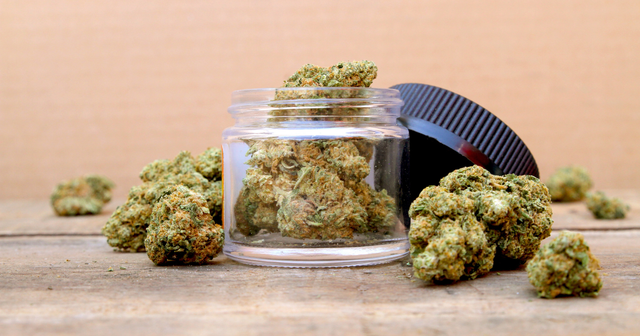Cultivars Explained: Georgia Peaches
In this installment of "Cultivars Explained," we are talking about the delicious and sweet cultivar Georgia Peaches. Written by Kim Carreño.
A Bit About Georgia Peaches...
Georgia Peaches, a cross of the renowned Girl Scout Cookies and Space Jill, is a cultivar with a sweet and fruity peach-like flavor with undertones of sour citrus. Its aroma is similar to its flavor with the addition of nutty and earthy undertones. Georgia Peaches may provide the paradoxical but sought-after effects of being relaxing while also providing uplifting and even stimulating effects. With a relaxed body and an uplift in mood, many feel it may boost creativity and promote a blissful state of mind.
According to consumers, Georgia Peaches can potentially make you feel drowsy or lethargic if consumed in larger doses. This cultivar commonly has relatively high quantities of Nerolidol, which when combined with certain other terpenes, may provide a long-lasting relaxing effect that allows one to truly wind down and enjoy the day.
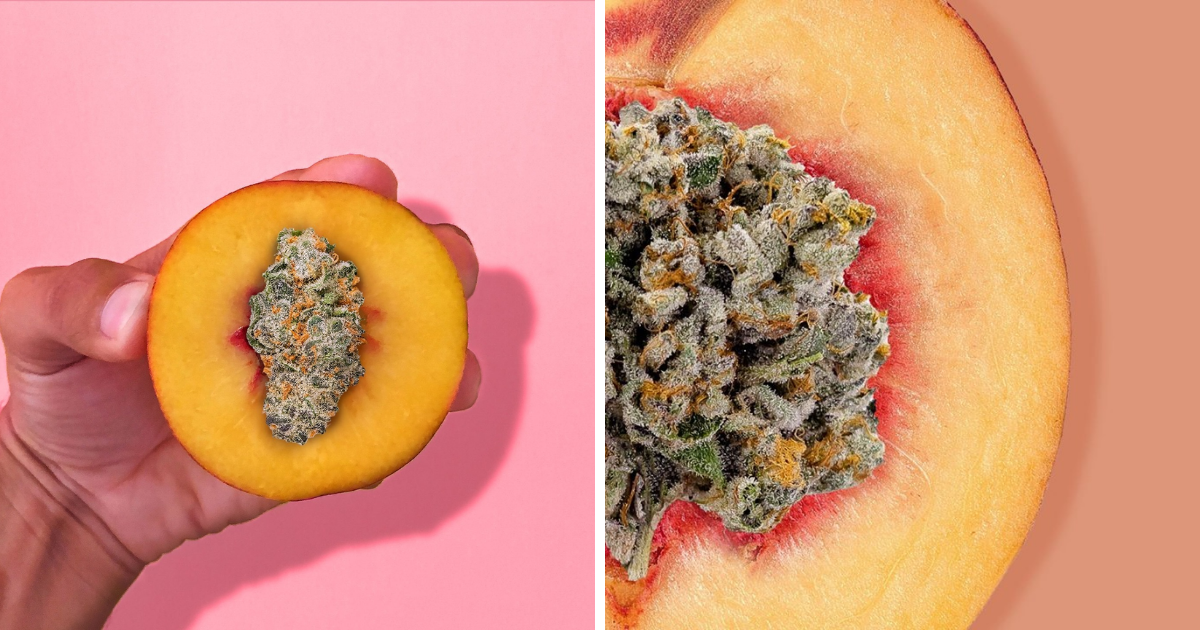
Fun fact: The term "Georgia Peach" was originally used to reference a woman's light, rosy, and peach-like complexion even if she didn't come from the state of Georgia.
- Genetics: GSC x Space Jill
- Average Growth Period: 9 - 12 weeks
- Ease of growth: Moderate, can be grown indoor or outdoor, requires specific soils.
- Flavor: Sweet, Fruity, Peach, Sour, and Citrus.
- Aroma: Sweet, Peach, Nutty, Earthy, and Berry.
- Potential Effects: Relaxed, Uplifted, Stimulating, Creative, Blissful and Euphoric.
- May Help Mitigate: Arthritis, Ulcers, Autoimmune Disorders, Chronic Pain, Anxiety, Depression, Insomnia.
- Therapeutic Potentials: Anti-Anxiety, Anti-Cancer, Anti-Bacterial, Anti-Fungal, Anti-Inflammatory, Anti-Tumor, Anti-Microbial, Anti-Oxidant, Anti-Parasitic, and Anti-Convulsions.
- Average Potency: 17% - 29%
The Five Dominant Terpenes Found in Georgia Peaches
Limonene: Certain studies have shown that limonene may help reduce stress and anxiety. There have been supporting studies suggesting that limonene may have potent anti-inflammatory and muscle relaxing properties for those looking for alternatives to Western medicine. Limonene may be utilized as an antioxidant that can potentially help lower blood sugar and certain fats, which are associated with metabolic syndromes such as diabetes.
Caryophyllene: Caryophyllene is the only terpene that has been shown to act as a cannabinoid, potentially activating our endocannabinoid system by binding to the CB2 receptor which may allow for anti-inflammatory effects to take over. The CB1 receptor is responsible for the psychoactive effects associated with cannabinoids, while the CB2 receptors, particularly in peripheral tissues in the body, may offer therapeutic effects when treating inflammation, pain, osteoporosis, anxiety, and depression among many other things. There are cancer studies suggesting that caryophyllene demonstrated traits of suppressing tumor growth in a 2007 study.
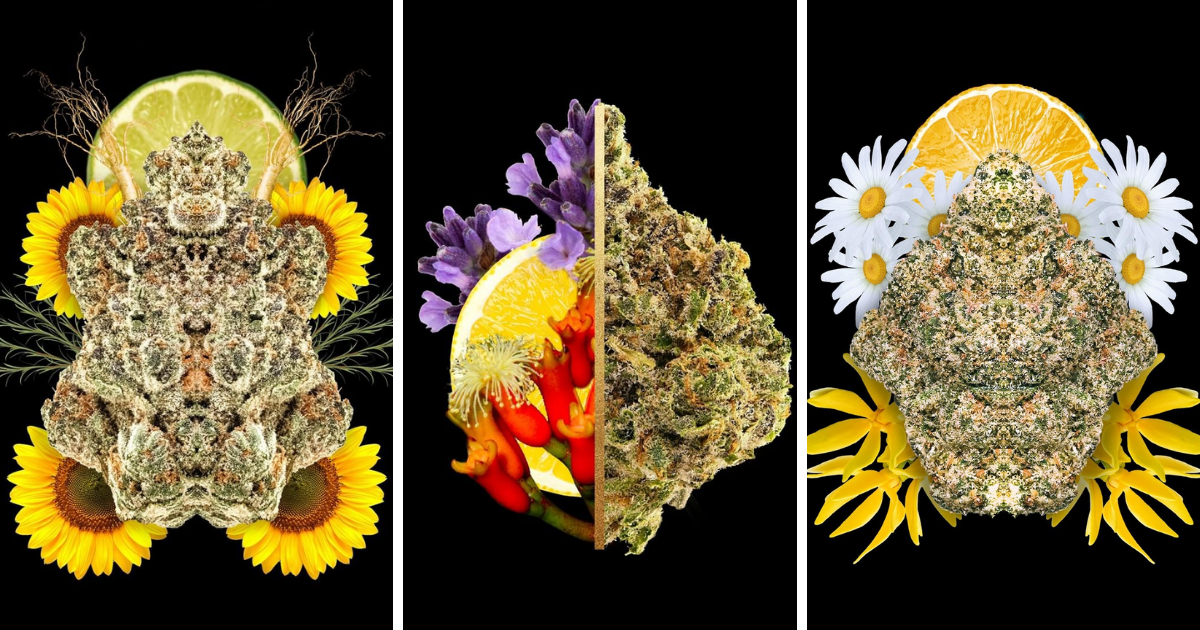
Nerolidol: Nerolidol is a sesquiterpene present in essential oils of several plants including cannabis. Nerolidol has been extensively studied for a variety of therapeutic uses, particularly for its anti-parasitic, antifungal, and antibacterial properties. Research has shown that nerolidol may have the potential to reduce Leishmaniasis infection by 95%. Other studies have shown nerolidol to act as an antifungal and anti-cancer agent, and may have neuroprotective properties. Nerolidol may potentially assist with anxiety and sleep-apnea.
Linalool and Humulene
Linalool: Even though linalool is considered to be a minor terpene, it may contain powerful therapeutic properties. Linalool may have the potential to help reduce and prevent anxiety, depression, and insomnia. Some studies suggest that this terpene may be a good option for treating several types of cancer which can potentially help improve cognitive function, and possibly reduce oxidative stress and inflammation typically associated with Alzheimer’s disease.
Humulene: Humulene is a very versatile terpene and is considered to be a major terpene in cannabis. Its most notable purported benefits include but are not limited to antibacterial, anti-inflammatory, and antitumor effects. It has been said that humulene may have an anorectic effect for those looking to lower their appetite during consumption. Many users do not like the “munchies” effect, making humulene an excellent terpene to explore for those who don’t like to overindulge. Studies suggest that humulene may have the potential to help improve metabolism, physical discomfort, and bacterial infections.
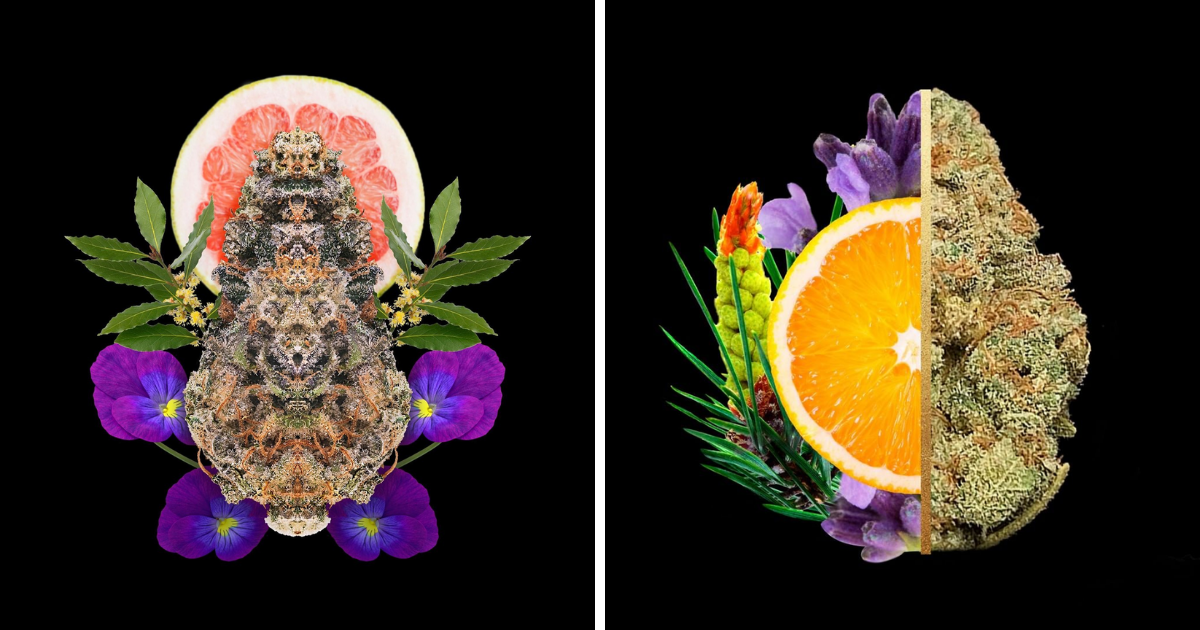
All studies are linked to the main topics highlighted in each paragraph to elaborate more in depth of each study. Studies are limited and research is still ongoing and are subject to change at any given moment, all medical benefit potentials are not proven and vary depending on the user.
DISCLAIMER: THIS SITE DOES NOT PROVIDE MEDICAL ADVICE.
All information, including but not limited to, text, graphics, images and other materials contained on this site are for informational purposes only. No text, graphics, images or other materials on this site are intended to be professional medical advice or a substitute for professional medical advice, diagnosis or treatment. Always seek the advice of your physician or other qualified health care provider with any questions you may have regarding a medical condition or treatment and before undertaking a new health care regimen, and never disregard professional medical advice or delay in seeking professional medical advice because of something you have viewed on this site.